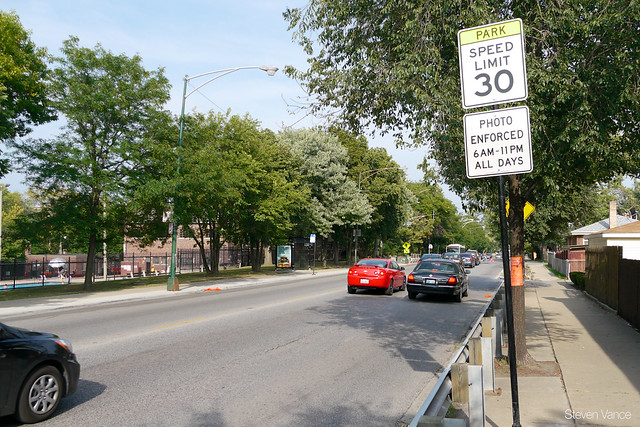Speed cameras are already reducing speeding. A Chicago Department of Transportation press release notes that 507 vehicles per day were photographed speeding 10 mph or greater over the speed limit in the first week of an initial "warning" period at four locations.
When the nine cameras at Gompers, McKinley, Garfield, and Marquette Parks started issuing tickets, there were only 211 violations each day in the first week – a 58.4 percent drop. In the third week of issuing tickets, the report says, that number dropped to 175, a 17.1 percent decrease.
The numbers would be different if people driving 6-9 mph over the speed limit were also being issued tickets, as is the city's right. The Emanuel administration, though, the third in a series of concessions to speeding motorists, is only issuing tickets when drivers exceed the speed limit by 10 mph or more.
The true test of the speed camera system's effect is if we see a decrease in crashes and injuries (data available in 2014) and if citywide speeds decrease. To capture citywide speeds, speed cameras that don't issue warnings or citations will need to be installed in a rigorous manner around the city to monitor speeds near and far from ticket-mailing speed cameras.
Other stats:
- From October 16, the first day any camera issued real tickets, to Monday (33 days), 2,700 tickets have been issued from all cameras.
- 24,000 additional citations would have been issued if not for the rule that vehicle owners receive a warning the first time the vehicle is photographed speeding.
- The city also issued 300,000 warnings during the collective 30-day "easing in" period.
- There's a two-week gap between the warning period and issuing final warnings and tickets for each camera, to ensure that vehicle owners receive warning notices.






